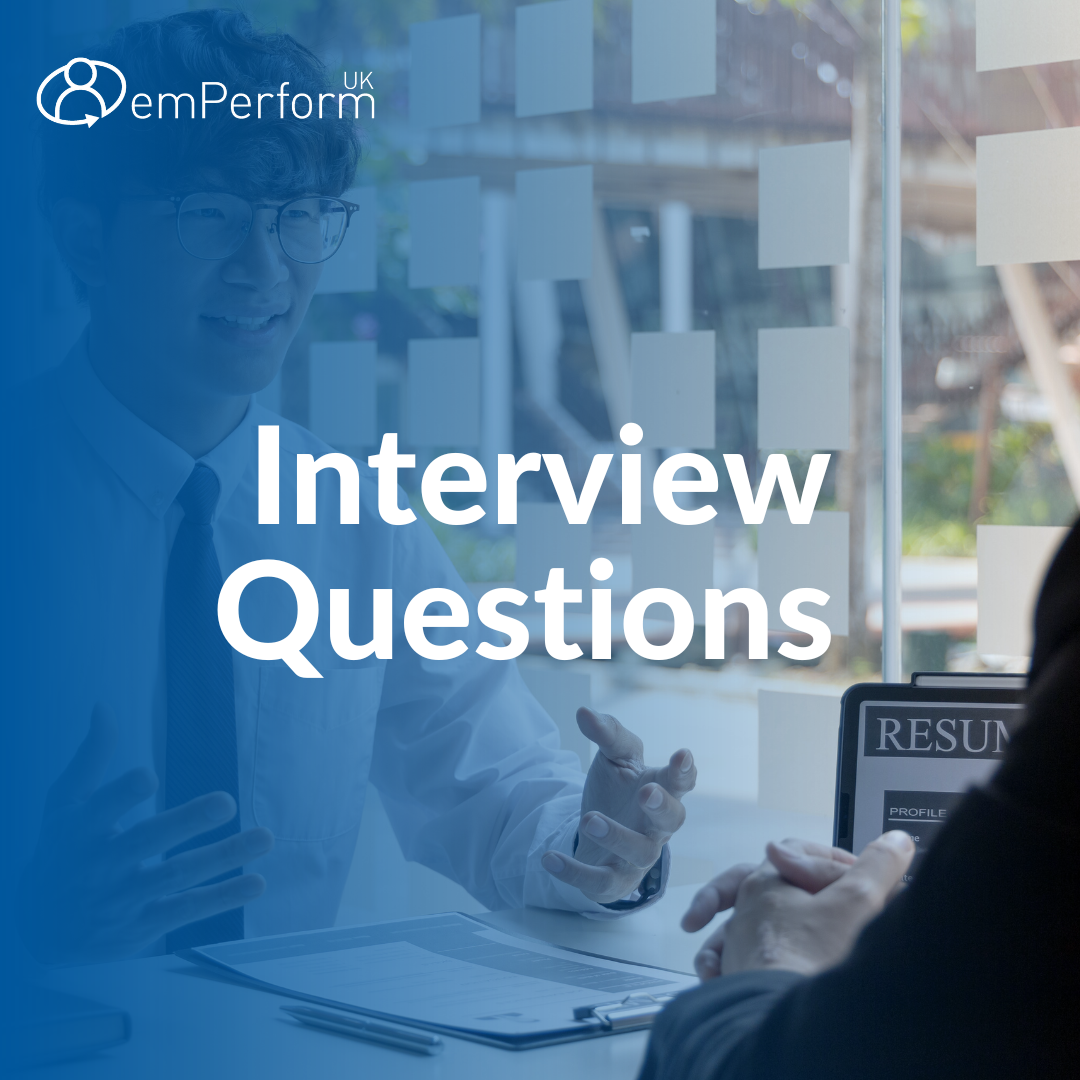
Having a list of insightful questions to ask in an interview can transform the experience for both interviewers and candidates. For candidates, it demonstrates genuine interest and engagement in the role, allowing you to assess if the job aligns with your career goals. For interviewers, thoughtful questions help identify the best fit for the company, ensuring a more effective hiring process.
This blog explores why asking the right questions is crucial, offering strategies and examples for both sides of the interview table. By mastering this skill, you can enhance the interview’s productivity and ultimately lead to better outcomes.
The Importance of Asking the ‘Right’ Questions at an Interview
Contrary to the belief that asking questions during an interview may give a negative impression, it actually showcases a candidate’s eagerness and engagement. According to Heat Recruitment 4 in 10 employers would reject a candidate if they showed no enthusiasm. Therefore, thoughtful inquiries about the role convey to the interviewer that you are attentive, genuinely interested, and enthusiastic about the opportunity. This proactive approach highlights your commitment to understanding the job and the organisation better.
Conversely, as an interviewer, asking the right questions is crucial for a successful hiring process. Consider what makes your company unique and what is required of all employees. Use a foundational set of questions to ensure all essential areas are covered, then collaborate with your team to identify specifics unique to your organisation. Crafting engaging questions that delve into the interviewee’s background and aspirations shows that you are invested in them and enthusiastic about the prospect of having them join your team.
How to Approach Questions as the Interviewer
Preparation is Key
Effective interviewing starts with thorough preparation. Create a structured set of questions that address the core competencies required for the role, as well as the distinct qualities your company values. Collaborate with your team to pinpoint the specific skills and attributes crucial for success within your organisation. This meticulous approach ensures a fair assessment of all candidates and helps you identify the most suitable person for the position.
Taking ongoing feedback into account can significantly enhance your understanding of what matters most to your team, and inform the interview process. Regularly gathering and analysing this feedback allows you to identify key aspects of the job and organisational culture that are valued by current employees. This knowledge can then be incorporated into your interview questions and evaluation criteria, ensuring that the selection process is aligned with the real world experiences and priorities of your workforce. By integrating employee insights, you create a more relevant and effective interview process that not only attracts top talent but also aligns new hires with the core values and needs of your existing team.
Be Aware of Unconscious Bias
Unconscious bias can inadvertently influence hiring decisions and undermine the objective evaluation of candidates. Be mindful of any preconceived notions or stereotypes that may affect your judgment. Use standardised questions and evaluation criteria to minimise bias, and focus on each candidate’s qualifications, experience, and potential to contribute to your team. Awareness and proactive management of Diversity, Equity and Inclusion (DEI) promotes a more inclusive and equitable hiring process.
Be an Active Listener
During an interview, it’s natural to focus on the questions you intend to ask next. However, actively listening to the candidate’s responses is crucial. Your main objective is to understand their experiences, skills, and suitability for the role, so give them your undivided attention. Deloitte reports that 83% of candidates say a negative interview experience alters their perception of the role. By listening attentively, you gain deeper insights and make candidates feel valued and respected, fostering more open and authentic communication and an overall more positive interview experience.
Don’t Make Promises You Can’t Keep
Ensuring the alignment between job expectations and reality during the hiring process is crucial to maintaining what the Chartered Institute of Personnel and Development calls the “psychological contract.” This unwritten agreement sets the tone for trust and satisfaction. If the job differs from what was promised, it can lead to frustration and disengagement, often resulting in the new hire leaving. To prevent this, employers should provide a realistic job preview during interviews, balancing transparency about challenges with benefits, and conduct regular check-ins to ensure new hires’ experiences meet their expectations.
We’ve All Been There!
Remember that interviewing can be a stressful experience for many candidates. Reflect on your own experiences as an interviewee and use this empathy to create a supportive and welcoming atmosphere. While your objective is to select the best candidate for your company, approaching the interview with kindness and understanding can help candidates feel more comfortable. This, in turn, allows them to showcase their true abilities and potential, leading to a more effective and insightful hiring process.
Consider using emPerform’s survey tools for a streamlined approach to collecting organisational insights. emPerform simplifies the process of gathering data needed for informed decision-making and fostering an engaged workforce. Its anonymous and user-friendly online survey options offer an ideal platform to gather employee feedback on how they felt during their interview process.

Top 12 Questions to Ask as the Interviewer
Below is a list of 12 foundational questions to guide your interview process. It is essential to adapt these questions to reflect your company’s specific needs and culture for a more tailored and effective interview:
- Can you tell me a bit about yourself?
- Why do you want to work here?
- What makes you a good fit for this specific role?
- What are your goals? Where do you see yourself in 5 years’ time?
- How would you improve our product/service?
- What is your greatest achievement?
- What is the biggest challenge you have overcome?
- What are your strengths and weaknesses?
- Would you describe yourself as a Team Player?
- Why are you leaving your current job?
- What motivates you?
- Do you have any questions for us?
How to Approach Questions as an Interviewee
Personalise your Questions to the specific role
Tailor your questions to the role you’re applying for, demonstrating that you understand its unique demands and opportunities. According to Stand Out CV, employers will interview an average of 6 candidates for every job vacancy they advertise. Therefore, personalising your questions to the specific role can help you differentiate yourself and leave a strong impression on the interviewer. Avoid generic queries; instead, ask about the specific responsibilities, challenges, and growth prospects associated with the position. This not only highlights your enthusiasm and understanding but also allows you to gauge how well the role aligns with your skills and career objectives.
Build on what you have already discussed in the interview
Avoid asking questions that have already been addressed during the interview. This can give the impression that you were not paying attention. To ensure you always have relevant questions, prepare a list of 5-7 thoughtful questions ahead of time. This approach allows you to adapt dynamically to the flow of the conversation and delve deeper into topics discussed, reflecting your active engagement and analytical thinking.
Do your Research
Prior to your interview, delve deeply into the company and the specific role to avoid asking questions that are easily answered by the job description or the company’s website. Stand Out CV found that “78% of candidates say they find it difficult to find information about companies prior to the interview,” making the question segment of the interview crucial for your comprehension. Show that you are well-prepared by inquiring about aspects not covered in public materials, such as the company’s strategic objectives or team dynamics. This approach not only demonstrates that you have done your research but also reveals your genuine interest and desire to gain a deeper insight into the organisation and the position.
Focus on your goals
Frame your questions around your career aspirations and what you seek to achieve in this role. Asking about advancement opportunities, skill development, or how the position aligns with your long term goals can make a lasting impression on the interviewer. This approach illustrates your ambition and Forwards thinking mindset, setting you apart from other candidates by clearly showing your intent to grow and contribute meaningfully to the organisation.
Enquire as to whether the company has a goal management scheme in place. emPerform’s goal and development plans simplify the process for organisations to set and track SMART goals, performance objectives, and development plans, ensuring workforce alignment and providing employees with the coaching necessary for success.

Top 12 Questions to Ask as the Interviewee
This is your time to ask the questions that matter most to you. Each question is an opportunity to deepen your understanding of the role and the company. However, it’s crucial to show that you’ve been attentive throughout the interview. Here are 12 thoughtful questions to consider:
- Are there opportunities for training & progression?
- What does a typical working day look like?
- What are your expectations for this role?
- What’s the performance review process like here?
- Can you tell me about the team I will be working with?
- What are the biggest challenges that someone in this position would face?
- Is this a new role or will I be taking over for an employee who’s leaving?
- How does this position contribute to the company overall?
- Do you expect the main responsibilities for this position to change in the next six months to a year?
- What direction do you see this company heading in over the next few years?
- What’s one challenge you occasionally or regularly face in your job?
- How would you describe the work environment here—is the work typically more collaborative or more independent?
Asking insightful questions during an interview enriches the experience for both interviewers and candidates. For candidates, it demonstrates genuine interest and helps assess the job’s fit with your career goals. For interviewers, it aids in evaluating the candidate’s suitability for the role and alignment with the company’s values.
Effective questions foster better communication, set clear expectations, and enhance the hiring process. By preparing thoughtful questions, you can transform the interview into a meaningful dialogueue, leading to more informed decisions and stronger, more satisfied hires.
In today’s digital world, performance management software like emPerform is essential for streamlining operations and supporting effective leadership. emPerform’s features—such as goal setting, performance reviews, and real-time feedback—empower leaders to manage their teams more efficiently. This software not only improves operational efficiency but also promotes a positive workplace culture centred on accountability and continuous growth.


Recent Posts